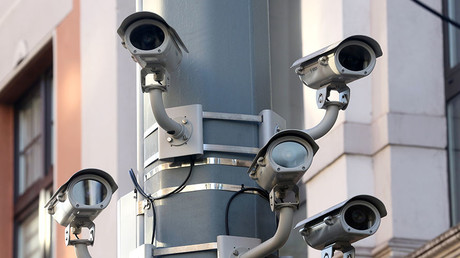Facial-recognition technology in revamped billboards over Piccadilly Circus has been described as “incredibly intrusive” by privacy campaigners. The cameras can detect the faces, genders and moods of passing public, and target tailored advertising.
The screens, which were switched off in January for renovation, will have cameras able to trace people’s features with 90 percent accuracy, according to Ocean Outlook, the company providing the technology.
Privacy campaigners have spoken out against what seems yet another step towards a draconian surveillance state. The technology will effectively snoop on masses of people as they pass through one of the world’s most-populous squares.
Individuals’ rights advocates have called on signs to be placed on the screens warning people they are being monitored.
The billboards will also detect the make of vehicles and offer Wi-Fi to people so they may interact with the screens. However, this may allow mobile devices to be tracked.
“From a privacy and security point of view, we think [it] is incredibly intrusive,” Big Brother Watch Chief Executive Renate Samson told Sky News.
“It literally is [the film] ‘Minority Report’.”
Landsec, the company which owns the screen, refused repeated requests from Sky News for an interview.
However, it said in a statement: “Although the Piccadilly Lights screen will be able to display advertising content that responds to real-time factors – such as the weather or the color of cars – the technology is not able to recognize individual people, or display individually targeted content.
“The screen does not collect or store personal details or data.”
It follows recent comments from privacy campaigners that facial recognition technology turns people into “walking ID cards.”
Responding to news of UK police adopting the technology in public spaces, campaign director at Privacy International, Harmit Kambo, told RT the system, which scans people’s faces against a mass database of facial profiles, risks labeling innocent people as “troublemakers.”
Via RT. This piece was reprinted by RINF Alternative News with permission or license.








